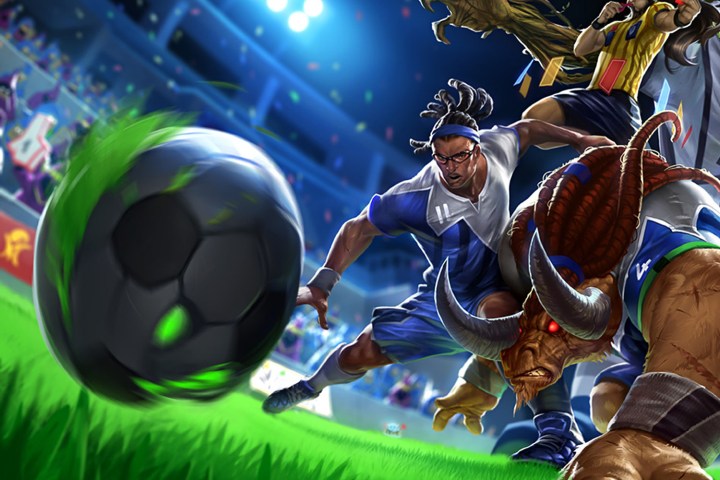
The Striker Lucian skin was introduced to the enormously popular MOBA in June 2014 as part of a promotional effort ahead of the 2014 FIFA World Cup where various characters were given football-themed costumes. While most combatants were simply given outfits that resembled typical soccer attire, Lucian underwent a few changes that seemed to deliberately evoke Davids.
During his time playing for clubs like Ajax and Juventus as well as the Dutch national team, Davids stood out for his skills on the pitch. However, he also became known for his signature look — a long set of dreadlocks and a pair of protective goggles, the latter of which is far from standard issue for a football player.
Anyone with an interest in European football would likely recognize these two elements as a specific reference to Davids. Indeed, the player’s son spotted the resemblance, alerting his father to the situation as evidenced by an Instagram post published shortly after the skin was released.
Davids did not seem to have too much of a problem with the skin when he first found out about it. Shortly after posting about it on Instagram, he made another public reference to its existence on Twitter.
Riot Games quality assurance analyst Heather Jones offered confirmation that the skin was based on Davids via Twitter, according to a report from US Gamer, but this post was later deleted. The player’s lawyer issued a complaint to the studio in December 2015 and the company filed its defense in April 2016, claiming that League of Legends players would associate the skin with the character rather than with the footballer.
A judge in Amsterdam ruled that Davids deserves to be compensated for the usage, so now Riot Games will have to submit evidence of the money that was made from the skin, of which the player will receive a cut. However, this decision only pertains to sales that took place in the Netherlands.


